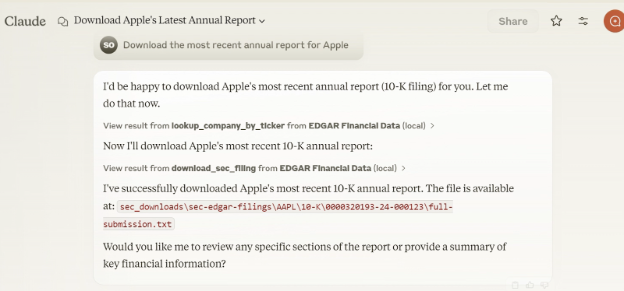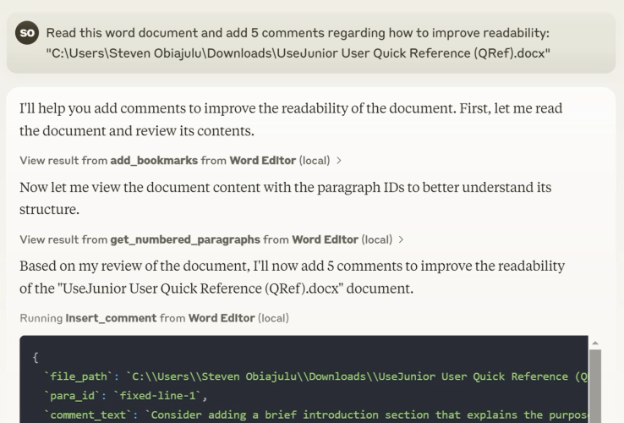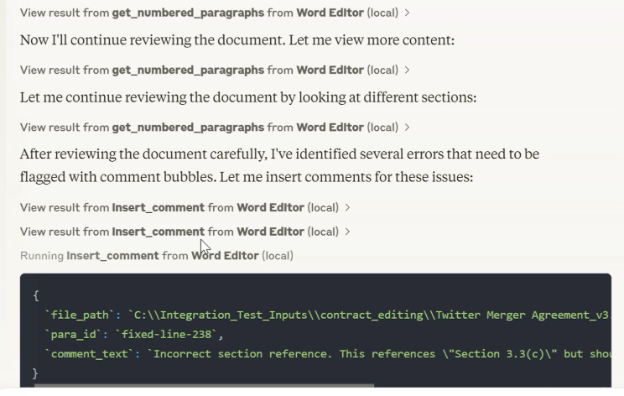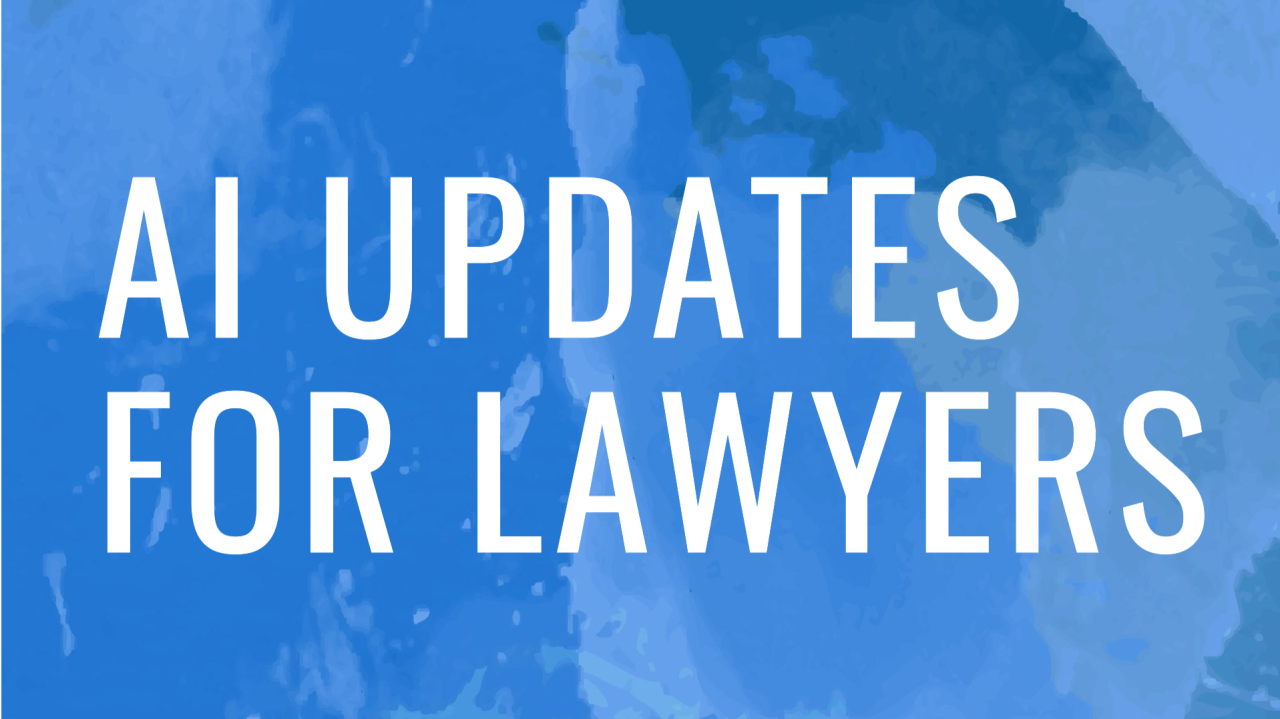AI Agent Toolkit, Free Deep Research, Text Editor Tool and Our Experiences with AI Agent Tool Implementations
Here’s what’s new in the world of AI tools relevant to legal professionals this week.
- OpenAI Launches New Agent Development Toolkit. This week, OpenAI unveiled a new toolkit designed to simplify the creation of AI agents (official announcement).[1] Unlike Anthropic’s recent focus on Model Context Protocol (MCP), OpenAI continues to use its own distinct protocols for tool use.[2] This is part of a broader industry trend toward tool-using agents, such as the Manus AI agent as we discussed last week.
- Google’s Deep Research Available to All Users. Google announced that its Deep Research feature is now available free for all users, powered by Gemini Flash, a reasoning-focused model.[3, 4] This enables deeper, more insightful queries that may benefit legal research. We find Google’s Deep Research tool to be more controllable and targeted than the tool of the same name that was released by OpenAI.
- Anthropic Introduces Enhanced Text Editing Capability. Anthropic released an enhanced text_editor tool this week, enabling Claude to perform precise, targeted edits on documents with improved efficiency and accuracy. According to the detailed user guide, this tool significantly reduces token consumption and latency, making AI-assisted legal drafting more effective.[5]
- Looking Ahead: Dynamic Memory Updating. We’re intrigued by the possibility of LLMs dynamically updating their own playbooks based on user interactions, a functionality recently announced by Codeium, the team behind the Windsurf code editor.[6] This capability could empower AI contract review tools to self-improve and more closely align with individual lawyer preferences. Several open source teams are creating tools for persistent structured memory for AI agents (see, e.g., glam.ai’s collection of MCP Servers for memory and Letta),[7,8] though we’re not aware of any developed for legaltech specifically.
- Demo: Two Test AI Agent Tool Implementations with MCP: Following last week’s article discussing tool use by AI agents, we created two simple model context protocol (MCP) servers to give an AI agent (Claude 3.7) access to two tools: EDGAR and Microsoft Word. (The UseJunior tool uses our own custom interfaces rather than the model context protocol and does not currently have an EDGAR integration; the demos below were for educational purposes only.)
EDGAR Tool. As shown in the screenshot below, we gave the AI access to the official SEC EDGAR database through the official SEC API using the model context protocol. Impressively, the model learned to navigate the API without any explicit training. The server took about 24 hours to create and integrate into the AI.

AI agent (Claude 3.7) searching SEC’s EDGAR database using our model context protocol (MCP) server. (Source: UseJunior)
Microsoft Word integration: We also created a straightforward MCP server to allow the AI model to edit Word documents directly through some of the Word integrations we previously created as part of the UseJunior tool. Without any special training, the AI quickly adapted to effectively proofread, annotate, and even edit agreements in response to fairly open-ended user instructions (e.g., “proofread this document”). We found Claude 3.7 with extended thinking to be the best model we have tested for simple proofreading tasks if the document fits within its context window. (Google Gemini has a superior context window length.)

AI agent annotating a Microsoft Word Document using our Microsoft Word integration. (Source: UseJunior)

AI agent proofreading a publicly available merger agreement in Microsoft Word Document using our Microsoft Word integration. (Source: UseJunior)
Limitations: We observed two significant limitations of the model context protocol based on our experience building the integration. First, the MCP server must be maintained locally, which would be challenging for many users. Second, the AI asks for permission the first time it accesses the tool in each new conversation, which slows down tool use. These limitations have been mentioned by other developers and Anthropic themselves.[9, 10]
We’re eager to hear from legal professionals—please let us know if there are specific AI agent features you’d like us to explore in future updates.
Conflicts of Interest
The author practiced law for six years at Ropes & Gray LLP prior to co-founding UseJunior. UseJunior is a member of both Google for Startups and Microsoft for Startups and has received grants and in-kind contributions in connection with these programs. The views expressed herein are our own and do not represent the views of Google, Microsoft or Ropes & Gray LLP. This is not legal advice
References
- OpenAI, New Tools for Building Agents, OpenAI (Mar. 11, 2025), https://openai.com/index/new-tools-for-building-agents/.
- OpenAI, Function Calling, OpenAI Platform Documentation, https://platform.openai.com/docs/guides/function-calling?api-mode=chat (last visited Mar. 14, 2025).
- Google, New Gemini App Features - March 2025, Google Blog (Mar. 13, 2025), https://blog.google/products/gemini/new-gemini-app-features-march-2025/.
- Logan Kilpatrick (@OfficialLoganK), Twitter (Mar. 13, 2025), https://x.com/OfficialLoganK/status/1900224377389465751.
- Anthropic, Text Editor Tool, https://docs.anthropic.com/en/docs/build-with-claude/tool-use/text-editor-tool (last visited Mar. 14, 2025).
- Vitrupo (@vitrupo), Twitter (Mar. 14, 2025), https://x.com/vitrupo/status/1900146068030914740.
- Glama.ai, MCP Servers for Knowledge & Memory, Glama.ai (Mar. 14, 2025), https://glama.ai/mcp/servers/categories/knowledge-and-memory.
- Letta, Letta (Mar. 14, 2025), https://www.letta.com/.
- Glama.ai, Model Context Protocol Quickstart, Glama.ai Blog (Nov. 25, 2024), https://glama.ai/blog/2024-11-25-model-context-protocol-quickstart#limitations.
- Alex Albert (@alexalbert__), Twitter (Nove. 25, 2024), https://x.com/alexalbert__/status/1861079950411141180.
About Steven Obiajulu

Steven Obiajulu
Steven Obiajulu is a former Ropes & Gray attorney with deep expertise in law and technology. Harvard Law '18 and MIT '13 graduate combining technical engineering background with legal practice to build accessible AI solutions for transactional lawyers.
